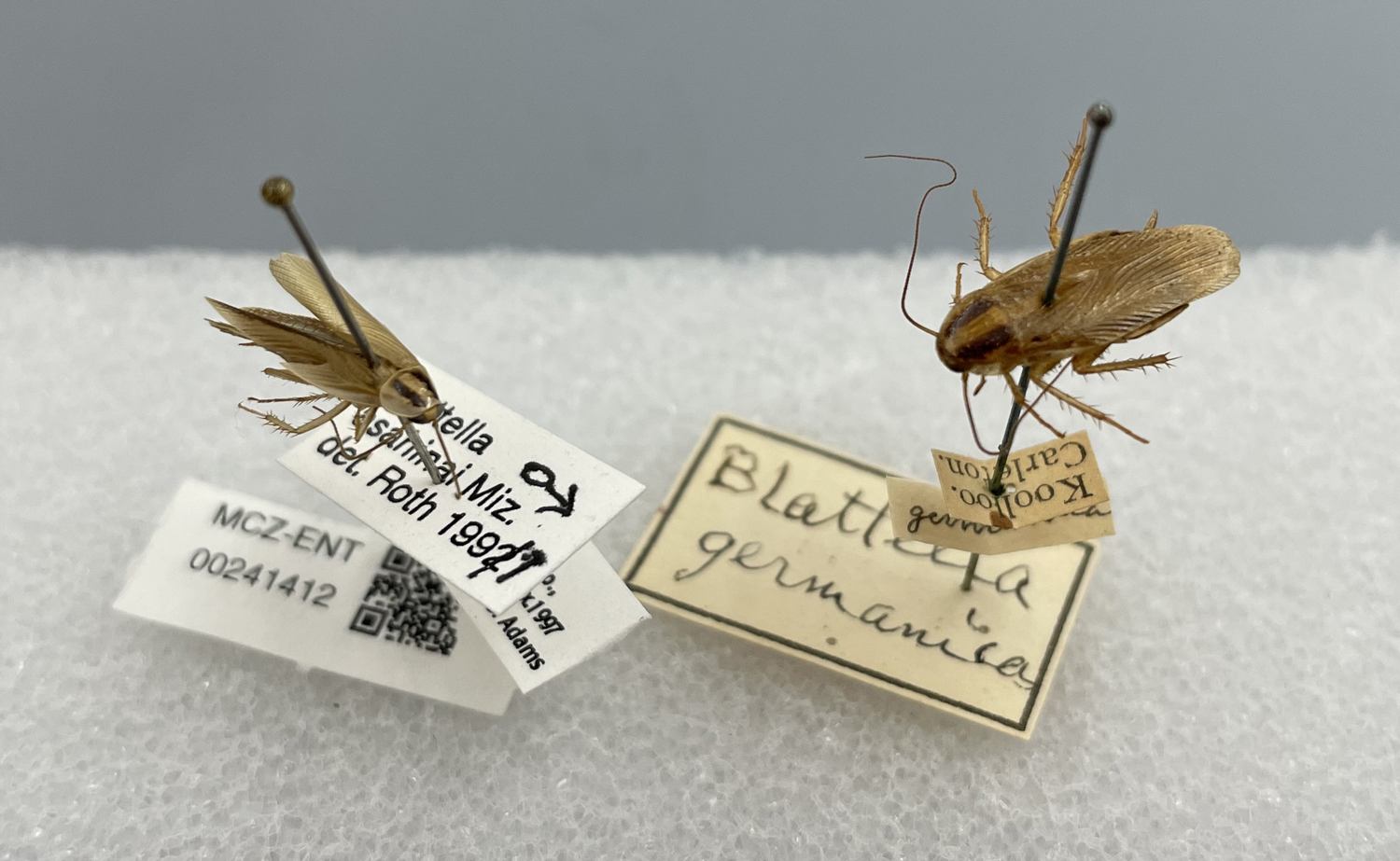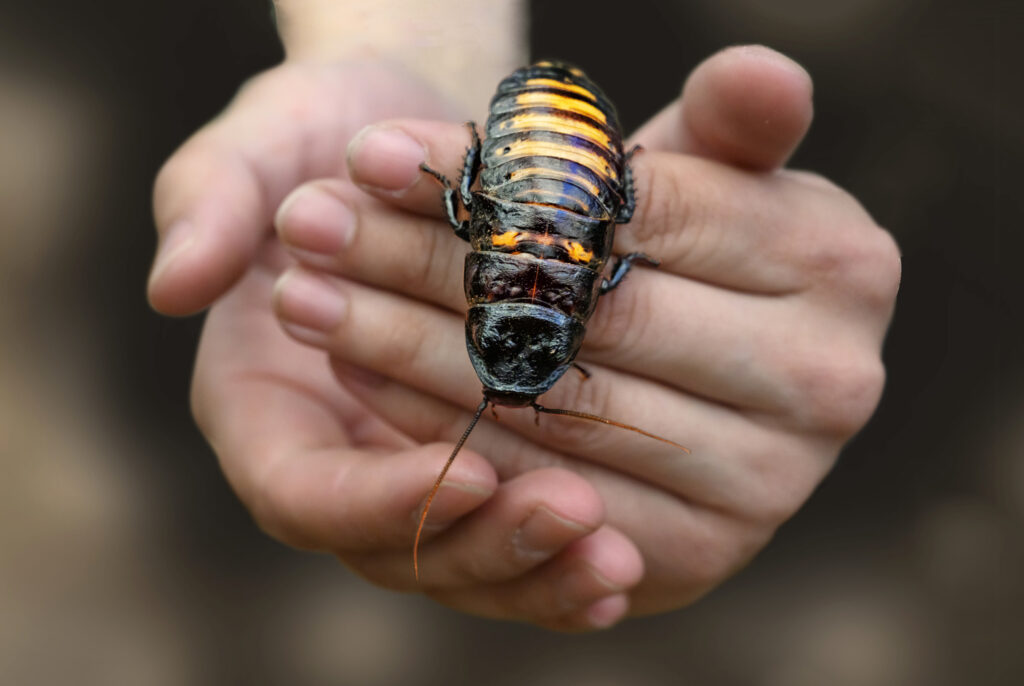Scientists Map the History of Roaches
German cockroaches evolved to live in human homes. Scientists now think they know how.

Qian Tang/Rowland Institute at Harvard University
The German cockroach (right) and the Asian cockroach (left) are related.
Where can you find German cockroaches? Anywhere humans live—unfortunately for us! Unlike other cockroach species, German cockroaches have evolved to thrive inside warm buildings—and they do, all over the world. In a recent study, scientists unraveled the mystery of how these insects became humans’ unwelcome roommates.
To figure out where a living thing comes from, it helps to study its genes. Scientists studied the genes of 281 German cockroaches (also known as Blattella germanica) from 17 countries and learned that they evolved from an Asian cockroach species called Blattella asahinai about 2,100 years ago. They theorized that after humans started settling into homes, these cockroaches began living with them and eventually evolved into a new species. Unlike Blattella asahinai, the new species couldn’t fly, and it was more likely to be active in the dark as opposed to being attracted to light. These new traits were perfect for an insect that needed to sneak around people’s homes, stealing crumbs.
“To survive, cockroaches have to avoid being seen by humans, and German cockroaches have evolved to be nocturnal [and] avoid open spaces, and although it retained its wings, it has stopped flying,” said Theo Evans, an associate professor of biology at the University of Western Australia and an author of the study.
The cockroaches spread to other parts of the world by hitching a ride with humans when they traveled long distances to trade with one another or engage in war. From Asia, the insects went to the Middle East. Then, about 270 years ago, they first appeared in Europe. Finally, around 1900, they arrived in the Americas and the rest of the world. As home heating became more effective, the cockroaches were able to live in colder climates.
So what makes “German cockroaches” German? They got their name because the scientist who first identified them, Carl Linnaeus, collected them in Germany.
The German cockroach is considered a bit of a supervillain because it’s hard to defeat. The species, which can contribute to asthma and allergies in humans, is resistant to insecticides. Scientists hope that by understanding the origin of the German cockroach, they can figure out how to beat it.

